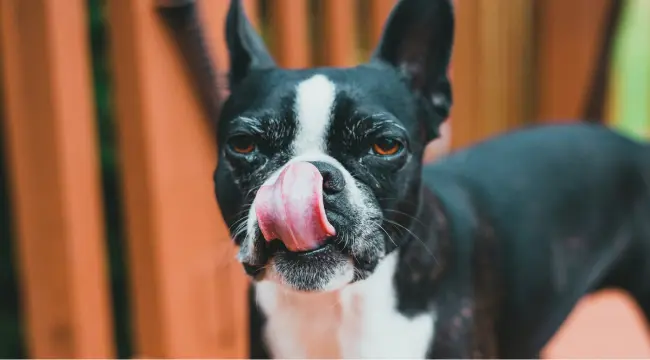
Have you ever noticed your furry friend suffering from a stuffy nose, followed by a few sneezes? Though it might make us laugh at their funny reaction to the tickle, a dog’s runny nose indicates an underlying issue that needs to be addressed. When your dog starts to sneeze, it could be caused by something minor (allergies) or serious (kennel cough). Knowing the cause of their sneezing will enable you to give them the appropriate care.
This blog will provide you with the information you need to know about the possible causes of a dog’s runny nose and what you can do to help prevent dog sneeze from worsening.
Causes of Dog Runny Nose
Dogs love to run and play outdoors, but this can put them at risk of catching airborne viruses and bacteria. Although this is not only the case for sneezing, some common causes include:
Foreign Objects
Sometimes, our canine companions may habitually stick their noses where they shouldn’t. If you’ve noticed your pup suddenly sneezing after getting into something that could irritate, this could cause a runny nose. If inhaled, foreign objects such as dust, grass clippings, pollen, and dirt can irritate the nasal passages.
Allergies
Allergens are everywhere, and dogs can be sensitive to them like humans. When a dog inhales allergens, their nose will often start to run as an immune system reaction.
Some common signs of allergies in dogs to look out for include coughing, sneezing, wheezing, and itchiness or redness around the eyes. If you notice any of these symptoms combined with a runny nose, your pup is likely suffering from environmental allergies.
Upper Respiratory Infections
Like humans, infections like a kennel cough can cause similar symptoms in dogs, such as a runny nose and wet cough. These infections are highly contagious and can spread easily to other animals or even humans.
It’s important to take your dog to the vet for a diagnosis and treatment plan as soon as possible if they start showing signs of an upper respiratory infection.
Nostril Problems
Dogs with longer noses, such as Collies and Dachshunds, typically have more sensitive nasal passages. This can make them more prone to sneezing or runny nose due to nostril problems. These issues can be caused by inflamed tissue inside the nasal cavity, which causes a stuffy or runny nose.
Canine Distemper
The canine distemper virus is one of the dogs’ most serious causes of a runny nose. This highly contagious virus can be spread from animal to animal through contact with saliva or mucus, and it can affect all types of dog breeds. Typical symptoms include coughing, sneezing, eye discharge, fever, and seizures.
If left untreated, this virus can quickly become life-threatening. If your pup shows signs of the canine distemper virus (especially when accompanied by a runny nose), take them to the vet as soon as possible for diagnosis and treatment.
How to Prevent Dog Runny Nose or Sneezes from Worsening?

When your dog suffers from a runny nose, taking precautions is important to prevent its symptoms from worsening. Here are some tips for helping your pup:
- Keep your pet away from other animals if they have an infection so it doesn’t spread.
- Give your pup plenty of rest and keep them in a cool environment with low humidity.
- Ensure your dog gets regular exercise, but don’t overwork them since this can worsen the symptoms.
- Avoid exposing them to allergens as much as possible by limiting their outdoor time or using indoor air purifiers.
- If necessary, give your pup medication prescribed by the vet, such as antibiotics or anti-inflammatories.
Prevention of Dog Runny Nose
There are several steps you can take to help prevent your pup from developing a dog sneeze:
- Ensure your pet is up-to-date on vaccinations; this will help protect against upper respiratory infections that can lead to sniffles and sneezes.
- Keep your home as dust-free as possible and vacuum regularly to reduce the chance of foreign object inhalation.
- Avoid taking your dog to areas where they may be exposed to allergens, such as grassy fields or parks.
- Monitor your pet closely if they’re playing with other animals, especially if those pets are not vaccinated.
Following these simple steps and being aware of the possible causes of a dog’s runny nose can help keep your pup safe and sniffle-free. If you ever notice any symptoms that worry you, don’t hesitate to take them to the vet immediately.
Conclusion
Dog runny nose is a common problem that allergies, upper respiratory infections, foreign objects, or canine distemper can cause. It would be best to check your dog to ensure it didn’t catch a cold or infection.
Preventative measures such as vaccinating your pet regularly and limiting their exposure to allergens are the best way to keep your furry friend happy and healthy. If you ever notice any worrying symptoms in your pup — especially when accompanied by a runny nose — don’t wait – take them to the vet for diagnosis and treatment immediately.



